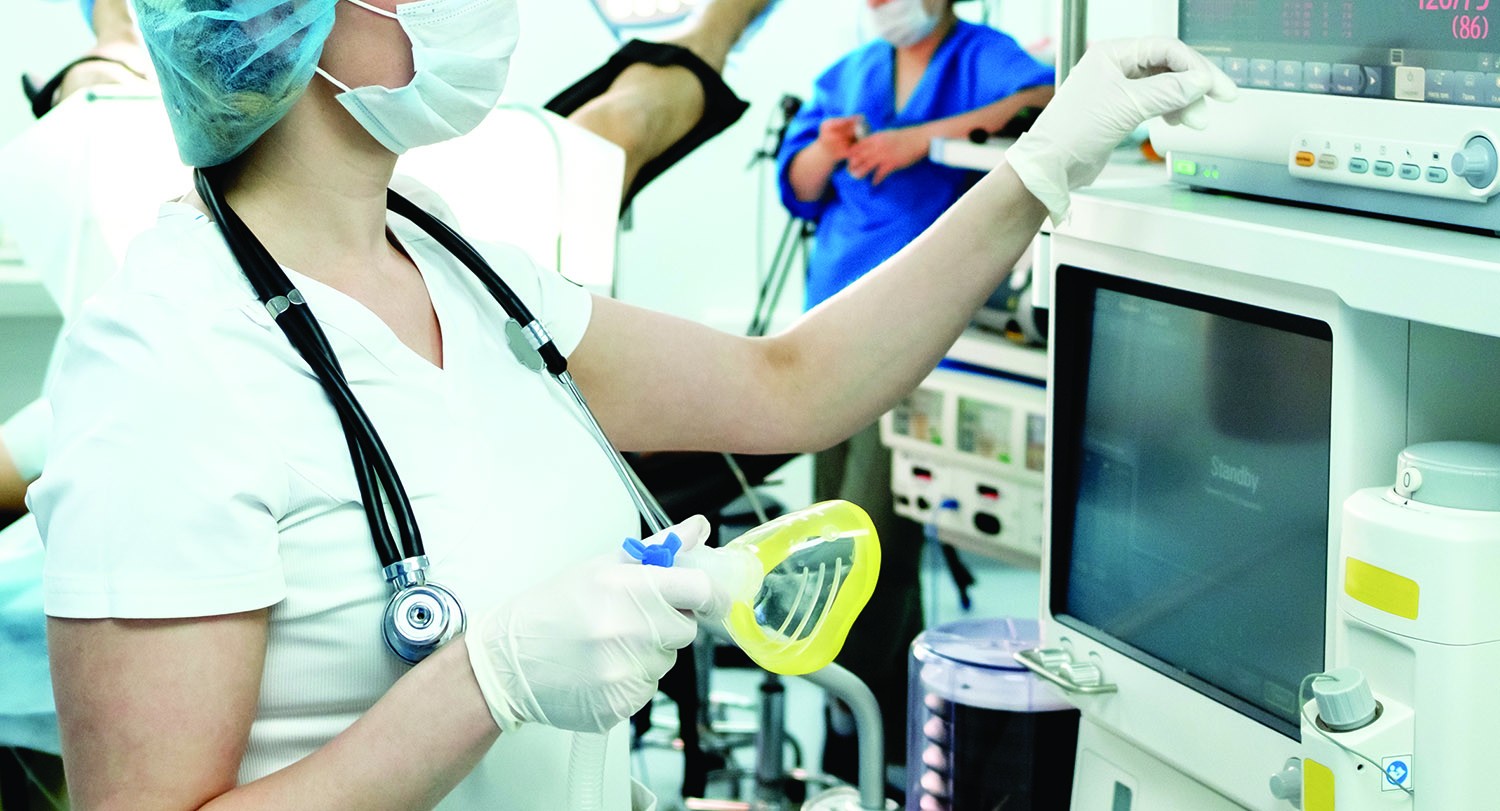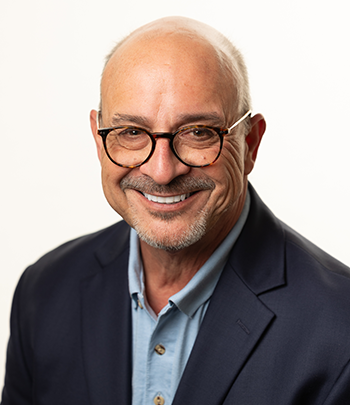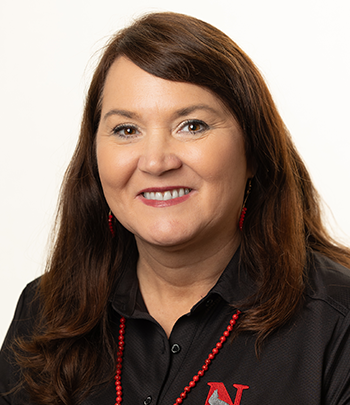Expand Your Horizons
Advance your career and expand your horizons with South Carolina's only bachelor's program in respiratory therapy. The program is designed for working, licensed respiratory therapists to study under experienced faculty on their own time, 100% online. The program seeks to provide you with educational development in a variety of relevant topics, including patient education, ethics, disease management, nutrition, critical care monitoring, community health challenges and emergency preparedness. Transfer seamlessly with a CoARC-accredited associate degree, earn 15 hours of life credit with licensure at no cost, and lock in your tuition rates with our Tuition Promise. Earn your degree in as few as 12 months, with fall and spring starts.

Requirements
You must fulfill the following requirements to be accepted to the Newberry College BSRT degree-advancement program:
- Completed a regionally accredited associate’s degree program in Respiratory Therapy with a 2.0 GPA or better
- Passed the RRT Credential offered by the National Board of Respiratory Care
- Active state license to practice Respiratory Therapy
- Active membership in AARC
- Active NBRC credential
Complete the online programs application for admission. Request a free credit evaluation by sending official transcripts from all academic institutions we will be considering for transfer credit. If you are accepted for admission, we’ll provide a free credit evaluation and Degree Completion Roadmap so you’ll know exactly where you stand now and what comes next.
Work with your program advisor to review your transfer credit evaluation, using the Program Completion Roadmap to ensure you have the correct distribution of courses. You can record previously completed courses for which we’ve granted credit and plan the remainder of your course requirements.
To graduate with Bachelor of Science in Respiratory Therapy degree from Newberry College, you must complete 120 total credit hours, distributed as follows:
- Online Liberal Arts Core (includes Online Orientation course) | 15 credit hours
- Prerequisites | RRT Program or RRT-Eligible
- Transfer Credit | 72 credit hours
- Electives | Pre transfer credit evaluation
- BSRT Competition Track Courses | 33 credit hours
- Total | 120 credit hours
Prerequisite Courses
Prequisite courses for admission to the BSRT degree-completion program are considered fulfilled with the successful completion of a Registered Respiratory Therapist program or the student is RRT-eligible.
Sample Courses
RES 310: Ethics and Professionalism
RES 312: Education Theory and Practice
RES 314: Pharmacology in Disease Management for Respiratory Care
RES 321: Advanced Airway Management for Respiratory Care
RES 330: Advanced Critical Care Monitoring
RES 331: Cardiopulmonary Nutritional Care
RES 333: Emergency and Disaster Management
RES 401: Advanced Pathophysiology in Critical Care
RES 402: Community Health and Rehabilitation
RES 403: Applied Disease Management
RES 410: Respiratory Therapy Capstone
BSRT Tuition
Degree-Completion Courses
$395 per credit hour
BSRT Expenses
Application fee – No fee to apply
Student Services fees – Included in your tuition
Course Resource fee – Included in your tuition
Testing fees – Included in your tuition
Books and Supplies – Varies by course requirements; approximately $100 -- $300 per course
Transcript fees (transferring schools) – Varies by institution, typically $20 - $30 per school
Financial Aid
You may be eligible for tuition assistance through the South Carolina Tuition Grant. We encourage you to complete the FAFSA (Free Application for Federal Student Aid) at https://fafsa.ed.gov
Newberry College school code: 003440
Apply for admission in three easy steps!
- Complete the online programs application for admission
- Send official transcripts from all academic institutions
- Send a copy of current respiratory therapy license
We're here to help! Our admission counselors are happy to answer questions and discuss financial aid and payment options. Call 1.800.845.4955 or email admission@newberry.edu.
BSRT Program Director: Dr. Jerry Alewine, Ed.D., RRT. Call 803.321.3320 or email Jerry.Alewine@newberry.edu.
Q: When can I apply to the program?
A: Our admission is rolling, meaning that applications are open throughout the year
Q: How many credits transfer?
A: 72 hours are transferrable and also offer 15 credit hours of life credit for licensure at no cost.
Q: Cost of textbooks?
A: Textbooks are kept to a minimum. We utilize various online free textbook services.
Q: Why do I need COL 110?
A: COL 110 is a free course that prepares you for the online environment. It is a three-credit class.
Q: How long is the program?
A: There are 33 credit hours of respiratory classes and potentially additional courses needed for graduation. Following the program as formatted you should complete in 12 months.
As a result of a statewide articulation agreement will all 7 AAS Respiratory programs in the state, students will be on target to graduate in three full semesters, 6 sub-term semesters. For example, is you start in August you will complete in August of the following year.
Q: What courses other than respiratory courses do I need to complete?
A: If not taken prior to enrollment, you will need religion.
Q: Do I need to be licensed?
A: Yes, but the temporary is acceptable until conversion to a permanent.
Q: What pre-requisites do I need to apply?
A: Graduation from a CoARC accredited program satisfies all pre-requisites.
Q: When does the program start?
A: There are two starts, Fall in August, and Spring in January
Q: Is the Newberry College BSRT program accredited by CoARC?
A: Bachelor programs that are not designed as pre-licensure programs do not require CoARC approval. The college is accredited by SACS-COC. This is the only required accreditation. However, the program is in the data collection process and will be seeking accreditation.
Q: Is this program eligible for financial aid?
A: Yes. You can apply for financial aid by completing the FAFSA at fsfsa.ed.gov. You can also call 803.321.5127 or email finaid@newberry.edu to speak with our Financial Aid office.
Career Possibilities
- Intensive Care Unit
- Surgical Operating Room
- Public Education
- Outpatient Clinical Practice
- Home Health Care
- Sleep Laboratory
- Pulmonary Rehabilitation Program
- Long Term Care Case Manager
- Emergency Transport
- Newborn / Pediatric Unit Care
- Skilled Nursing Facility


 Close
Close


